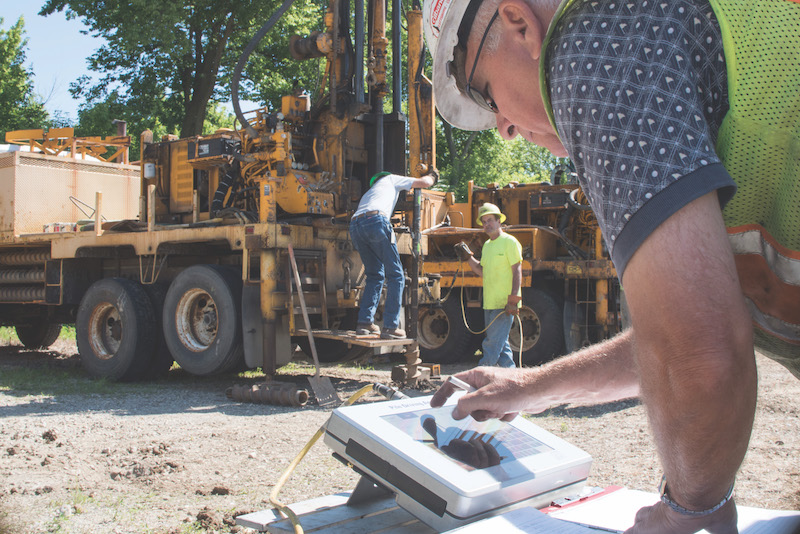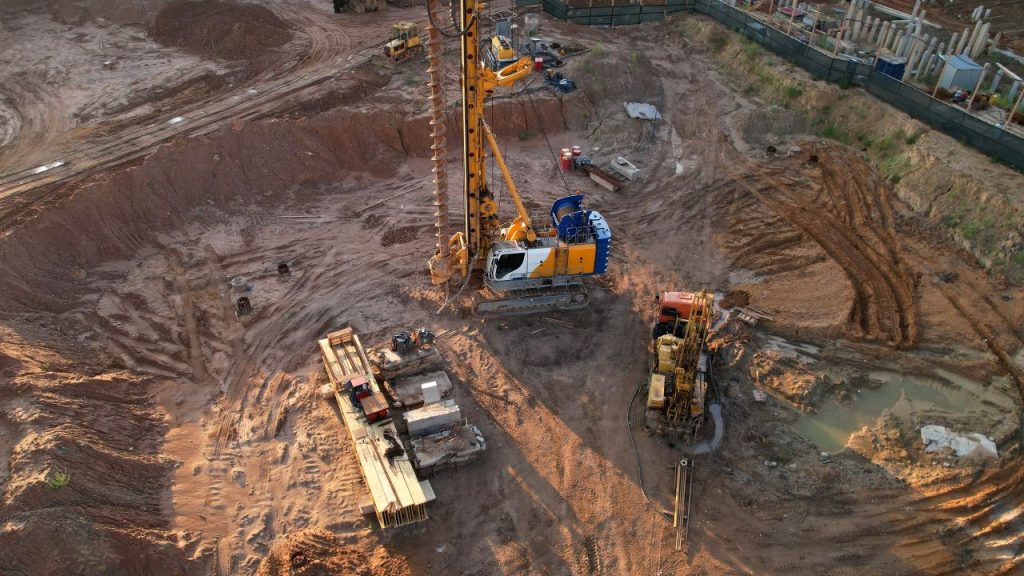A Complete Guide to Ending Up Being an Effective Geotech Engineer
A Complete Guide to Ending Up Being an Effective Geotech Engineer
Blog Article
Comprehending the Comprehensive Function of Geotechnical Engineers in Ground Examination and Dirt Analysis for Building And Construction Tasks
Geotechnical engineers are indispensable to the success of building tasks, giving important insights through thorough ground investigations and soil analysis. Their experience in assessing soil actions and employing innovative screening methods informs vital choices that copyright architectural integrity and safety and security.
Role of Geotechnical Engineers
The crucial duty of geotechnical designers in construction tasks can not be overstated, as they supply essential insights right into dirt habits and site conditions. These experts are entrusted with evaluating the viability of the ground for numerous kinds of structures, making certain security and security throughout the construction procedure. Their knowledge encompasses a vast array of activities, including site characterization, dirt tasting, and research laboratory testing, which are essential for determining the physical and mechanical properties of the soil.
Geotechnical engineers use their findings to establish foundational layouts that fit load-bearing demands and reduce dangers associated with soil negotiation, liquefaction, and slope security. They play a vital role in identifying potential dangers, such as groundwater fluctuations and contamination, which can dramatically affect task feasibility. They team up with architects, civil designers, and contractors to make sure that geotechnical factors to consider are integrated into the general layout and construction phases.
Ground Examination Methods
Ground investigation methods form the backbone of geotechnical engineering, making it possible for engineers to gain a thorough understanding of subsurface problems. These strategies are necessary for examining soil residential properties, determining groundwater degrees, and identifying possible geological hazards.
Typical techniques include borehole drilling, which enables for the removal of soil samples at different midsts, offering essential data for evaluation. In addition, sitting screening methods, such as Conventional Infiltration Examinations (SPT) and Cone Penetration Tests (CPT), are utilized to assess soil strength and density straight in the ground.
Geophysical techniques also play a considerable role in ground investigations. Techniques such as seismic surveys and electrical resistivity tomography help evaluate subsurface characteristics without substantial excavation. geotech engineer. These non-invasive approaches are particularly helpful in sensitive or big areas where interruption need to be decreased
Moreover, exploratory trenches can be excavated to aesthetically evaluate soil layers and determine any anomalies. Each of these techniques contributes unique insights, permitting geotechnical engineers to create accurate website analyses and educate style choices. In recap, a mix of these ground investigation strategies is important for successful building and construction projects, ensuring security and structural stability.
Dirt Analysis Techniques
Dirt analysis techniques are critical for understanding the chemical and physical buildings of soil, which straight influence the design and building of foundations and other frameworks. Different techniques are used to evaluate soil attributes, making sure that geotechnical designers acquire accurate information for notified decision-making.
One frequently utilized method is grain size evaluation, which identifies the circulation of fragment sizes within a soil sample. This is vital for identifying dirt types and forecasting their behavior under load. Another vital technique is Atterberg restrictions screening, which examines the plasticity and dampness material of fine-grained soils, giving insights into their design homes.

Field examinations, such as Conventional Infiltration Examinations (SPT) and Cone Penetration Examinations (CPT), offer beneficial in-situ data relating to dirt toughness and stratification. Jointly, these soil analysis methods create the structure of geotechnical investigation, permitting engineers to create secure and effective structures customized to the details problems of the site.
Risk Reduction Strategies
Applying effective threat mitigation techniques is essential for geotechnical engineers to address potential obstacles in construction projects. These strategies are vital in identifying, examining, and taking care of threats associated with dirt conditions, site stability, and groundwater changes, which can negatively influence job outcomes.
One key strategy includes carrying out comprehensive website investigations that use innovative geophysical strategies and comprehensive soil sampling. By acquiring precise data on subsurface conditions, engineers can make educated choices on style and building and construction methods. In addition, employing anticipating modeling devices permits for the simulation of various situations, allowing designers to predict possible problems and implement safety nets.
Moreover, establishing clear interaction channels among task stakeholders promotes a collaborative strategy to run the risk of administration. Regular updates and appointments make certain that all events know the advancing site conditions and can adapt their approaches accordingly.

Effect On Building Projects
The effectiveness of risk reduction methods directly affects the overall success of building and construction tasks. look at this now Geotechnical designers play an essential role in this domain name, as their expertise in ground examination and soil analysis educates vital decisions throughout the building and construction process. By accurately examining dirt problems and identifying prospective threats, these professionals allow task groups to devise effective options that lower threats connected with ground instability, water seepage, and various other geotechnical challenges.
The effect of comprehensive geotechnical evaluation appears in various aspects of construction projects, consisting of cost management, task timelines, and architectural honesty. Early recognition of problems enables for timely treatments, lessening read this post here costly hold-ups and budget overruns. A comprehensive understanding of site problems enhances the style and engineering process, guaranteeing that frameworks are constructed to stand up to environmental pressures and possible all-natural calamities.
Ultimately, the contributions of geotechnical designers are important to the successful execution of construction projects. Their work not just promotes safety and security and conformity with laws yet likewise enhances the lasting sustainability of structures, making sure that they do properly throughout their intended lifespan. The collaboration between geotechnical teams and other stakeholders is vital for accomplishing ideal results in building ventures.
Verdict
To conclude, geotechnical engineers execute a critical feature in building and construction jobs through thorough ground investigations and soil evaluations. Their proficiency in evaluating soil behavior, using different investigation strategies, and applying risk mitigation approaches dramatically adds to the architectural honesty and safety and security of developed environments. By teaming up with multidisciplinary teams, these specialists enhance project effectiveness and ensure conformity with security standards, inevitably causing effective construction outcomes and lowered prospective hazards.
Geotechnical engineers are essential to the success of building and construction projects, giving necessary understandings with extensive ground examinations and soil evaluation.The pivotal function of geotechnical engineers in building tasks can not be overstated, as they supply important understandings right into soil behavior and website problems. Their expertise includes a large array of tasks, including website characterization, soil sampling, and laboratory screening, which are essential for establishing the mechanical and physical homes of the dirt.
By properly analyzing dirt conditions and determining potential dangers, these experts allow task groups to devise efficient options that reduce risks linked link with ground instability, water seepage, and various other geotechnical difficulties.
In verdict, geotechnical designers execute a critical function in building jobs via thorough ground investigations and dirt analyses.
Report this page